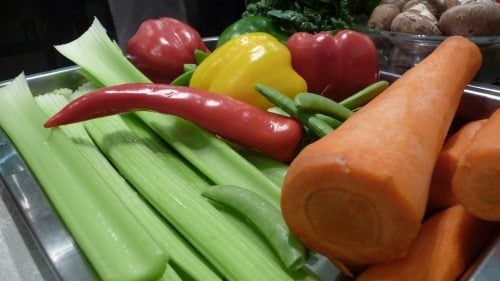Food producer Oscar Mayer has replaced artificial preservatives in their hot dogs with celery juice, a natural source of the preservative sodium nitrite.
A publication by the American Chemical Society examines the trend toward clean labels and natural preservatives, and the efforts to incorporate them without sacrificing the quality or shelf-life consumers have come to expect.
Artificial preservatives such as sodium nitrate, sodium benzoate and propionate have long been the norm in food preparation because they are cheap and effective in small amounts.
But the publication finds both consumers and manufacturers are increasingly demanding foods that contain natural, more recognizable ingredients.
In response, the food industry is evaluating more plant-based solutions to deter microbes, slow spoilage, and maintain color, flavor and texture on the shelf.
The goal is to prune labels of intimidating synthetic chemicals and replace them with ingredients that shoppers will recognize from the produce aisle, such as rosemary, garlic, ginger, cinnamon and clove.
‘Natural’ is not necessarily the same as safe or healthy.
Nitrites are used in cured meats to prevent the growth of deadly botulism-causing bacteria, but health researchers have identified the preservative as a possible carcinogen.
The risk is the same regardless of whether the nitrites come from celery juice or artificial sources.
Additionally, some natural alternatives may not be as effective or practical as synthetic options.
Acetic acid — also known as vinegar — is a clean-label solution to microbe control, but its pungent flavor makes it unsuitable in many food applications.
It is also less effective than the lactic acid and sodium benzoate it replaces.
Finding plant-based alternatives for every synthetic preservative is a tall order, but if current demand continues, consumers can expect to see more natural ingredients on labels in the future.










